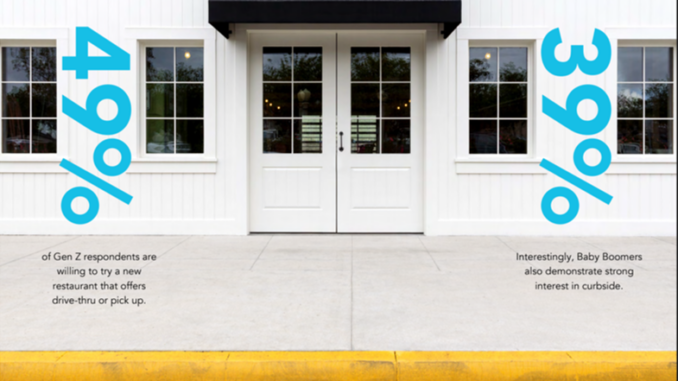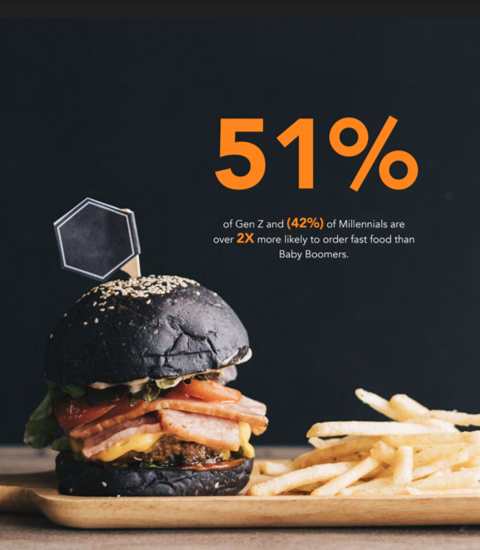
4.23.2020
A new study examines how the current health crisis has impacted consumer behavior around the use of mobile apps to purchase food and essentials. According to the data, American consumers are increasingly downloading mobile apps to purchase from restaurants and stores for pickup via the drive-thru and curbside.
The study, entitled The State of What Feeds Us, was conducted by Bluedot, a provider of location technology for mobile apps. The study, based on a survey of 1,630 American consumers, was conducted this month. Top takeaways as they pertain to restaurant operators include the following:
- The majority of consumers (53%) are adding more mobile apps to limit their contact with on-site staff.
- Nearly half of consumers (45%) say they have increased their use of mobile apps to buy food, groceries, and other essentials.
- Nearly half (43%) are willing to try a new restaurant if a drive-thru or pickup option is available.
- More than half (51%) have downloaded at least one new app to purchase food and essentials, with 45% of established mobile users adding more than two.
- Three out of four (75%) stated they will visit a drive-thru during the pandemic, with nearly half (46%) planning to go as often or much more often than usual.
- Overwhelmingly, consumers feel safer at a drive-thru that offers less or zero human contact. Sanitization and safety information posted at the drive-thru is the next most important consideration.

Mobile apps: Americans are downloading more mobile apps for food and essentials.
- Half of respondents (51%) are downloading new mobile apps, with 37% adding more than two. Established mobile apps users are downloading even more, with 45% adding two or more apps.
- Consumers are adding new apps for big retail (24%), fast food (23%), groceries (20%), food delivery (19%), social media (19%), and fast casual (18%).
Fast food: More Americans are relying on fast food during the national health crisis.
- Three out of four consumers (75%) still plan to visit the drive-thru amid the pandemic.
- Over the past month, the majority (52%) have visited the drive-thru the same amount as before the pandemic or more than before.
Curbside pickup and drive-thru vs. delivery: COVID-19 has led to an increased use of curbside pickup and drive-thru over delivery.
- Over the last month, consumers have used curbside pickup (33%) and drive-thru (28%) more often or much more often than before the pandemic.
- Half stated they are planning to utilize curbside pickups amid the pandemic, with 27% stating they are utilizing or will utilize them more than usual.
- 31% say they have ordered from food delivery apps over the last six months, but they now feel that third-party delivery services are the least safe option.

Safety: Reducing human contact is key.
- Consumers feel safer at a drive-thru that offers less human contact or zero contact; sanitization and safety information posted at the drive-thru is the next most important consideration.
- Respondents feel curbside pickup (31%) and drive-thru (25%) are the safest ways to minimize human contact.
Generational differences: Millennials and Gen Z offer the greatest opportunity.
- Millennials (31%) and Gen Z (52%) plan to use mobile apps more often now than before the pandemic.
- The most downloaded apps vary by generation:
- Millennials are adding more food delivery apps followed by fast food apps.
- Gen Z are adding more fast food apps followed by big retail store apps.
- Baby Boomers and Gen X are adding more big retail store apps followed by grocery store apps.
- Top reasons for using mobile apps:
- Millennials, Gen Z, and Gen X are using mobile apps because they make ordering easy.
- Baby Boomers are using mobile apps to limit contact with onsite staff.
The State of What Feeds Us is available for complimentary download (registration required).

